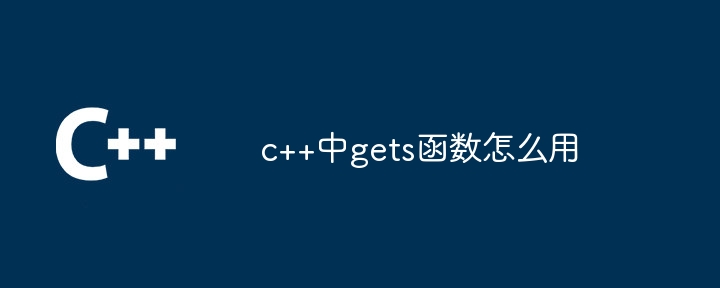
The gets() function in C is used to read a string from standard input and store it in a character array. It reads the string until a newline character is encountered or the end of file is encountered. Its usage includes: declaring a character array to store strings. Use the gets() function to read the string. Verify the return value to ensure the read was successful.

Usage of gets() function in C
gets() function is used to read characters from standard input string and store it in the specified character array. It is similar to the scanf() function, but has no format specifier and reads until a newline character is encountered or the end of file is encountered.
Syntax:
char *gets(char *str);Parameters:
Return value:
Usage:
To use the gets() function, follow these steps:
Example:
#include using namespace std; int main() { char str[100]; cout << "Enter a string: "; gets(str); if (str != NULL) { cout << "The string you entered is: " << str << endl; } else { cout << "Error reading the string." << endl; } return 0; } Note:
getline()orfgets().The above is the detailed content of How to use gets function in c++. For more information, please follow other related articles on the PHP Chinese website!
 What are the differences between c++ and c language
What are the differences between c++ and c language Recommended learning order for c++ and python
Recommended learning order for c++ and python Cost-effectiveness analysis of learning python and c++
Cost-effectiveness analysis of learning python and c++ Is c language the same as c++?
Is c language the same as c++? Which is better to learn first, c language or c++?
Which is better to learn first, c language or c++? The difference and connection between c language and c++
The difference and connection between c language and c++ C++ software Chinese change tutorial
C++ software Chinese change tutorial Cost-effectiveness analysis of learning python, java and c++
Cost-effectiveness analysis of learning python, java and c++



